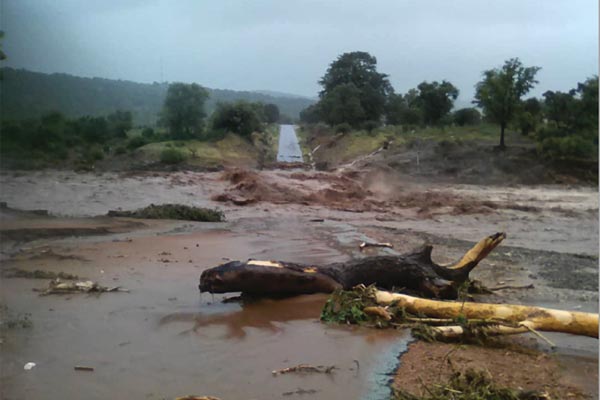

BY JAIROS SAUNYAMA
Anna (35) wept uncontrollably, with her hands resting on her bulging womb.
Just over two weeks ago, she was bubbling with joy as she patiently waited in anticipation of delivering her second baby.
As an HIV patient, she had consistently taken her medication under the prevention of mother-to-child transmission (PMTCT), an effective strategy in the prevention of the transmission of the disease until the fateful Friday.
The Cyclone Idai-induced floods swept across the area, destroying property and in the process sweeping away Anna’s life-saving drugs. For days, she has not taken them and is scared that her unborn child might now be at risk of contracting the disease.
“It might be too late; my pills were washed away by the floods. I am yet to get supplies. I feel I am carrying a grave in my womb. I had visited my relatives in Skyline only to encounter this,” she said, before breaking into tears.
Her tale is a sad one. Despite all the damage caused by the floods, her seven-year-old daughter is among those missing and could possibly be dead.
“I am childless now; all hope is lost. I hope there will be no complications before I get my next supply of drugs, ” Anna said in between sobs.
- Chamisa under fire over US$120K donation
- Mavhunga puts DeMbare into Chibuku quarterfinals
- Pension funds bet on Cabora Bassa oilfields
- Councils defy govt fire tender directive
Keep Reading
This is not about Anna’s predicament alone, but a number of HIV patients in Chimanimani and other areas are at risk after having defaulted on taking their anti-retroviral (ARVs) drugs as they were swept away by the raging floods.
As if that was not enough, some of the clinics and medical centres were destroyed while some village workers are yet to be accounted for.
Pregnant women have not been spared – so cruel was the weather phenomenon.
PMTCT is a significant source of HIV prevention in children and accounts for over 90% of HIV prevention in infants and children.
According to health experts, without PMTCT intervention, about a third of HIV-infected women would pass the virus to their babies. According to a survey, about 20% of infected babies acquire the virus during pregnancy, 60% during labour and delivery, and 20% after birth through breast-feeding.
Zimbabwe’s efforts to eliminate mother-to-child infections are in line with the implementation of Sustainable Development Goal (3) on health that seeks to end the Aids pandemic by 2030.
Meanwhile, it seems calamities that befell patients in Manicaland whose march towards realisation of sound health has been put off road by the recent Cyclone Idai.
However, Manicaland National Aids Council (NAC) provincial coordinator, Evos Makoni, said they were on top of the situation as they had established makeshift healthcare centres where people could collect their drugs.
“We have established tents at designated points that are offering primary healthcare packages and assist those with chronic diseases. We are aware that some have lost their medical cards. What they need to do is to go and present themselves and they will get assistance. For now, they are given drugs to sustain them in the next few weeks as we wait for the next batch that will see patients getting drugs that will last for three months,” he said
“We have deployed community volunteers to go and mobilise those in need of drugs to go to the centres. For areas that are currently inaccessible we have dispatched motorised personnel or those with motorbikes who will be delivering drugs once we identify a patient. We are also distributing drugs for diseases like TB.”
Makoni added that they had also distributed enough condoms to prevent new infections.
“The current situation has seen a lot of people with less or nothing to do, hence their over-engagement in sexual activities. In a bid to minimise new infections, we are supplying condoms in various camps as we move to reduce new incidences,” he added.
ARV drugs can also be obtained at Chimanimani District Hospital.
Today, the world seems to have come to an end for Anna. The angels of happiness have deserted her, leaving the poor mother in untold psychological trauma. She hopes to one day resume taking her drugs. Perhaps next month she is going to give birth to a healthy baby – who would bring back a purpose for living to her. But the coming-in of NAC with the much-needed intervention, the future could still be bright for Anna.











